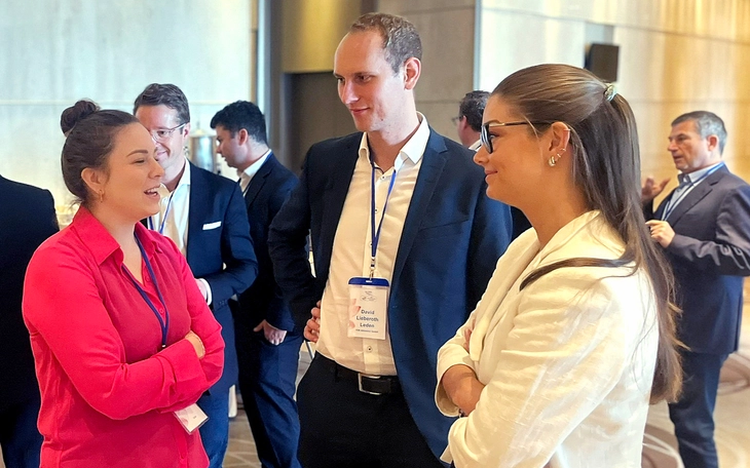
International investors attend a global investment conference in Ho Chi Minh City. Photo: N. Binh / Tuoi Tre
Vietnam is in a crucial phase of development, especially in digital transformation and innovation. The demand for high-quality human resources is becoming increasingly urgent.
However, the improvement in domestic labor quality remains slow.
In the FDI sector, the percentage of workers with degrees or certificates has dropped from 25.5 percent in 2021 to 21.7 percent in 2024.
Boosting foreign investment appeal
In response to this challenge, the Vietnamese government has proactively introduced several policies to attract skilled professionals in critical industries.
Notable among them are Decree 219 on foreign labor in Vietnam and Decree 221, which provides limited-term visa exemptions for foreigners in special categories vital to socio-economic development.
These reforms are seen as significant steps toward attracting and retaining international talent, helping Vietnam integrate more rapidly into the high-tech economy.
The new policies have received strong interest from the international expert and investor community.
Andrew Goledzinowski, former Australian Ambassador to Vietnam and a strategic advisor, praised the recent visa policies as highly positive and welcome developments.
He noted that while Vietnam can eventually train its own scientists, engineers, scholars, and high-level managers, the shift to a high-tech economy is complex.
"Vietnam is an open and transitioning economy, so there is an ongoing need for skilled foreign experts to support this process," Goledzinowski told Tuoi Tre (Youth) newspaper.
Kim Nyoun Ho, chairman of the Korean Chamber of Commerce in Vietnam, described Decree 219 as a “significant breakthrough” in resolving long-standing challenges faced by businesses.
The decree has shortened the time for issuing work permits and broadened the range of individuals exempt from permit requirements.
This significantly simplifies administrative procedures, enhances HR management efficiency, and supports faster business implementation.
“These changes are a positive signal, boosting the attractiveness of Vietnam’s investment environment for the international business community,” Kim stated.
Long-term residency proposed
Despite the progress, experts point out several areas for improvement to maximize the effectiveness of these policies, particularly in the length of residence permits.
Entrepreneur Timen Swijtink, who has lived and done business in Vietnam for 18 years, said that a two-year temporary residence card has never been an issue for him.
However, for other foreigners, it can be a concern when considering long-term financial commitments.
Expert Hong Sun suggested Vietnam consider offering 10- to 20-year residence or settlement cards for large-scale investors, with clear criteria to encourage long-term engagement.
Flexibility in applying new regulations is also critical.
Goledzinowski noted that the flexibility of implementation remains unclear and might be limited. For instance, special visa exemption cards could apply to elite football players but are restricted to the top 100 globally.
"If this rule were applied to Manchester United Football Club, only three players would qualify, and the rest would be excluded. Hopefully, the new policies will be implemented in ways that maximize benefits for Vietnam," he said.
Experts also stressed the need for clear guidelines to avoid inconsistent interpretations and implementation across different levels of government.
Kim Nyoun Ho emphasized increasing flexibility in visa procedures for talent in specialized fields and adding preferential policies for high-skilled technical workers.
"Ensuring consistency in applying and interpreting legal regulations is crucial for creating transparency and building trust among businesses," Kim added.
Resolution 229, which grants 45-day visa exemptions to citizens from 12 countries, part of a broader effort to stimulate tourism, has also raised optimism.
This policy helps present Vietnam as a friendly, open, and attractive destination.
Timen Swijtink, founder and CEO of Lacàph, sees the reforms as part of Vietnam’s broader strategy to attract and retain international talent. These efforts are not only modernizing the country but also maintaining its competitiveness regionally and globally.


Max: 1500 characters
There are no comments yet. Be the first to comment.